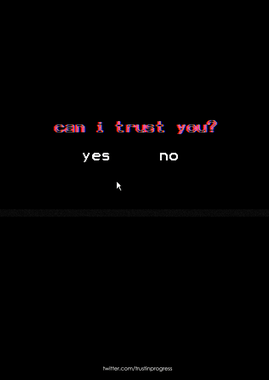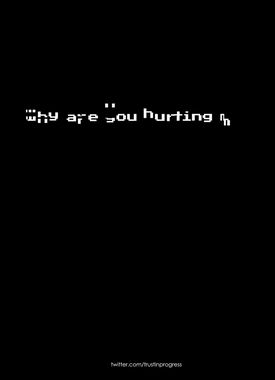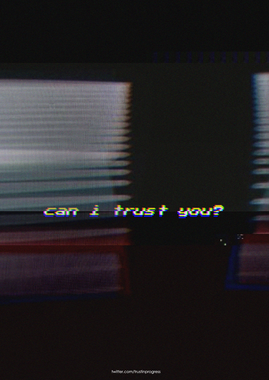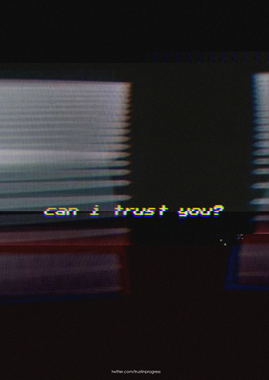Trust in Progress
by Flick
This work has not been commented by curators.
Title
Trust in Progress
Headline
Trust in Progress
Concept author(s)
Felicity Sanders
Concept author year(s) of birth
1994
Concept author(s) contribution
Research, Concept, Design.
Concept author(s) Country
Australia
Friendly Competition
Radical intimacies: dialogue in our times (2014)
Competition category
Visual communication practice
Competition subcategory
static
Competition field
academic
Competition subfield
student
Subfield description
Swinburne University of Technology / Faculty of Health, Arts and Design / Communication Design
Check out the Radical intimacies: dialogue in our times 2014 outlines of Memefest Friendly competition.
Description of idea
Describe your idea and concept of your work in relation to the festival outlines:
The campaign I created is about encouraging dialogue and intimacy through social media and the internet as a whole. A lot of people have fears about the internet making us stupid because we don’t have to memorise information anymore when we have google, that we are becoming lazy because we are attached to our computers and rely on them too much or that our attention span is not what is once was.
This distrust of progress has been happening since Socrates, a famous Greek philosopher and a man who feared the invention of books and writing, claiming they “forgetfulness in the minds of those who learn to use it”. (Plato’s Phaedrus http://www.english.illinois.edu/-people-/faculty/debaron/482/482readings/phaedrus.html)
It’s universal for older generations to judge new technologies and tell young people that they’re not as good, that they don’t fit into previous and more traditional ideals. The advancement of technology changes a lot of things, our brains, the way we process information, the way we work, our society as a whole evolves with our technology. Which is why dialogue and intimacy are really important and should be cultivated and nurtured throughout the change. We, as humans, require these things to solve problems and have meaningful discussions with others so we don’t go crazy and think we’re alone in the world with nothing but our ideas and thoughts for company. This does not mean that the internet completely disregards these values.
This idea that looking back and favouring traditional ideals is harmful, when has anything ever gotten better by reverting to the past? The campaign is about moving forward and embracing the way we now filter through information and communicate. We live in a fast paced world and our minds are struggling the keep up as the traditional ways of communication are not as relevant anymore. The plasticity of our brain is being shaped by our experience on the internet, because of this it’s changing because we don’t need long attention spans anymore, we don’t need the ability to store as much information as we used to.
What kind of communication approach do you use?
The campaign uses dynamic digital posters, which ask really intimate questions, a static physical poster and a twitter account that asks daily questions about the internet and today’s technology, links towards articles that debunk internet myths, as well as re-tweeting and encouraging the discussion of the internet in a more positive light.
What are in your opinion concrete benefits to the society because of your communication?
I believe the discussion that will come from the campaign will help dispel a lot of myths about the internet and the general negativity towards it.
What did you personally learn from creating your submitted work?
I learned that I really do appreciate the internet, I’ve met a lot of wonderful people on there who I’ve become very close friends with. I think that the research I did taught me a lot about today’s society and how we generally react to new phenomenons.
Why is your work, GOOD communication WORK?
I feel that my work is good because I’m taking a unique perspective that isn't favoured often. I stepped away from traditional ideals to embrace the new and encourage others to do the same. It’s a very accessible campaign, anyone with a internet connection can contribute to the discussion on twitter and share the digital posters around the internet.
Where and how do you intent do implement your work?
Into the digital space, the poster would be the only part of the campaign used in a physical space.
Did your intervention had an effect on other Media. If yes, describe the effect? (Has other media reported on it- how? Were you able to change other media with your work- how?)
No










